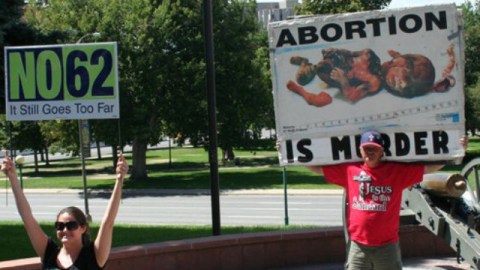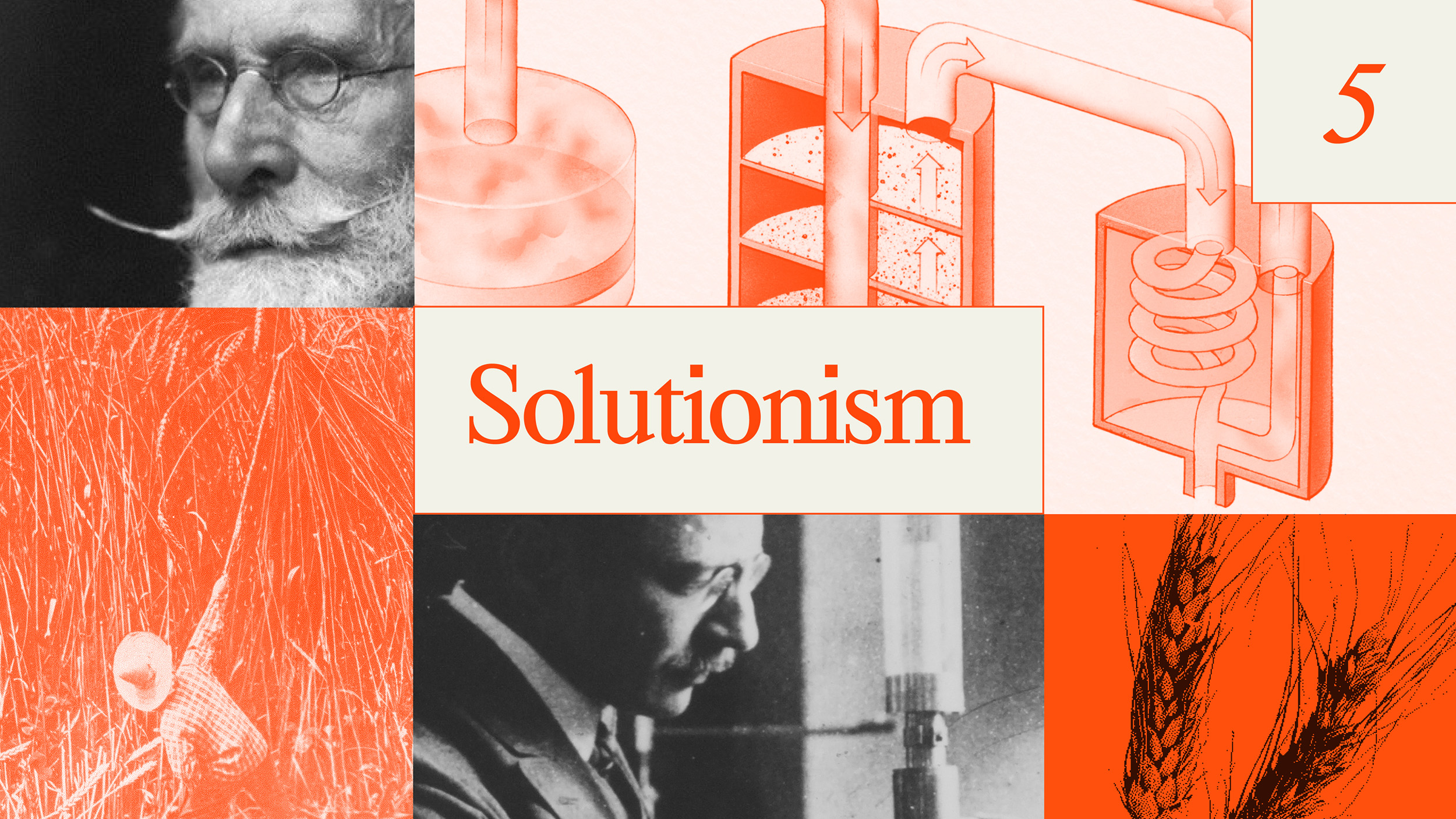Amendment 62: “It Still Goes Too Far” vs. “Persons, not Property”

Last week, I introduced a series about a Colorado ballot initiative that would amend the state’s constitution to define a person under the law as “a human being from the beginning of biological development,” giving fertilized eggs the full rights of born citizens. This week, AoE’s reproductive health correspondent Trina Stout begins to explore the communication strategies behind the campaigns.–Matthew Nisbet
The next American civil rights struggle, or a draconian assault on women’s health? Colorado’s proposed personhood amendment has inspired vastly different messaging. Let’s take a look.
“Persons, not Property”
Amendment 62 proponents liken the personhood campaign to iconic American civil rights struggles: the battle to end slavery, the civil rights movement of the 1960s, and the fight for women’s suffrage. In framing their effort to grant rights to embryos as the next civil rights crusade, the Yes on 62 campaign seeks to activate the righteous indignation that spurred Americans to action during those historic fights for justice and equality.
Yes on 62’s tagline is “Persons, not property, ” an overt reference to slavery. One of their early ads was a radio spot that featured a fictitious slave:
I’m George Stevens and I’m a person. I was held as property as a child. Even before my birth I was called a slave in an America you wouldn’t recognize. But folks like you helped me escape North to freedom and in 1864, I joined the infantry to fight for my country. I fought so all slaves would be recognized as persons, not property. And we won.
But today in Colorado, there are still people called property — children — just like I was…This November, vote “yes” on Amendment 62. Amendment 62 declares unborn children persons, not property. And that’s the America I fought for.
Continuing to evoke the black civil rights struggle, Keith Mason, president of Personhood USA, last week called the use of the term “fertilized egg” “the same thing as using the N word for an African American,” adding that the phrase was “dehumanizing.”
Personhood Colorado director Gualberto Garcia Jones compared the organization’s second attempt to pass a personhood amendment (a virtually identical 2008 measure failed 73-27) to women’s suffrage, noting that before the 19th Amendment, women achieved the right to vote state by state, and that it often took several tries.
Eggs’ Rights vs. Women’s Rights
It’s tempting to agree with these frames. They draw on our collective history, tap into our nation’s values of justice and equality, and invoke feelings of righteousness and patriotism. Who could oppose civil rights?
But the civil-rights frame breaks down almost immediately; since fertilized eggs are (usually) inside a woman, the questions arise: whose civil rights should take priority — the woman’s, or the egg’s? What would a personhood law mean for pregnant women? Amendment 62 proponents have deliberately avoided answering these questions.
At the Huffington Post, here’s how attorney and blogger Jill Filipovic describes the issues raised:
What do we do about all those embryos in fertility clinics? Do we force women to implant them and carry them to term? If not, how do we justify forcing women to carry naturally-implanted pregnancies to term?
…What do doctors do if they’re faced with a life-threatening pregnancy? Do they force the woman to continue it, knowing it will kill her? I mean, it’s not the fetus’s fault, and it can’t really be construed as self-defense to terminate the pregnancy. And their lives are equal, aren’t they? Do we just let nature take its course, then?
Abolition, the Civil Rights Act, and the 19th Amendment all expanded civil rights to a disenfranchised group without revoking the rights of others. Amendment 62 would extend rights to fertilized eggs at the expense of the rights — and health — of women.
Which bring us to the No on 62 campaign.
“It Still Goes Too Far”
Amendment 62 opponents seek to horrify voters by framing the measure as extreme, dangerous, and out of touch. They are doing so by articulating what would happen if the initiative were to become Colorado law: it would ban all abortion and The Pill, complicate inheritance rights, open miscarriages to investigation, and more.
No on 62’s tagline, “It still goes too far,” attacks the measure’s consequences from three perspectives: women’s health, government’s role, and religious freedom. In this post, I examine the strategies behind the jeopardizing-women’s-health frame.
First, to strengthen the credibility of their health-based messaging, the No on 62 campaign has partnered with the medical community, including the National Advocates for Pregnant Women, the American College of Obstetrics and Gynecology, and the Colorado Medical Society.=
Second, No on 62 is strategically emphasizing the initiative’s risks to women’s health, and playing down — though still mentioning — women’s rights. This is for two reasons: the persuadables (voters No on 62 hopes to/can attract) care more about the health of the women in their lives than an abstract notion like women’s rights (a concept that, for some, surfaces negative associations with feminism); and women’s rights messaging would involve discussion of elective abortions, which some persuadables find troubling.
So No on 62 is focusing on the proposed amendment’s consequences for women’s health: that it would ban even medically necessary abortions (such as for a pregnancy that lodges in the fallopian tube), complicate post-miscarriage care, and possibly deny life-saving treatment (such as chemotherapy for a woman with cancer who becomes pregnant).
The campaign is using emotional appeals featuring women who needed abortions because their health or life was at risk, as well as featuring the doctors and nurses who provide health care to pregnant women. No on 62 videos are not online yet; this is an ad from the campaign’s fight against the nearly identical 2008 measure, Amendment 48:
Which frame do you think will prove most persuasive come Election Day?
–Guest post by Trina Stout, a graduate student at American University’s School of Communication; focusing on a career in reproductive health advocacy. Before graduate school, she worked for the environmental news and humor site Grist.
See Also:
Amendment 62: Colorado to Vote on Whether Fertilized Eggs Are People (Again)





